Spiders can be scary (not only for arachnophobes). However, in most cases, this fear of spiders is an innate fear and is actually triggered by the “legginess” of the spider, as well as its sudden movement, speed and hairiness. Nevertheless, although uncommon, getting bitten by a spider can be a very unpleasant experience and the bites of some Australian spiders may need some medical treatment.
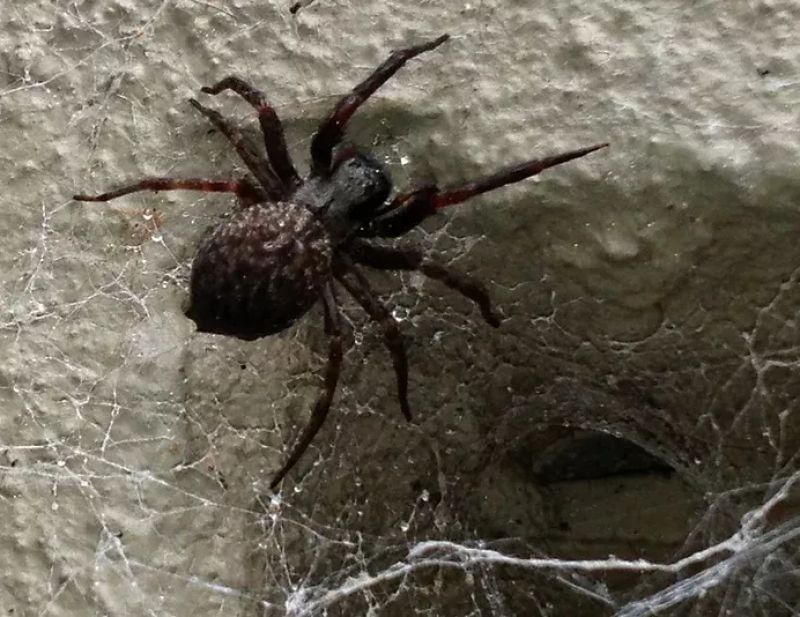
The black house spider is probably one of the most common web-building spiders found around the home. It is a very timid spider and will scuttle back into its hiding place when disturbed.
Symptoms: Bite can be quite painful with local swelling. Occasionally patients may develop nausea, dizziness and sweating.
Treatment: Standard spider bite treatment (see below)
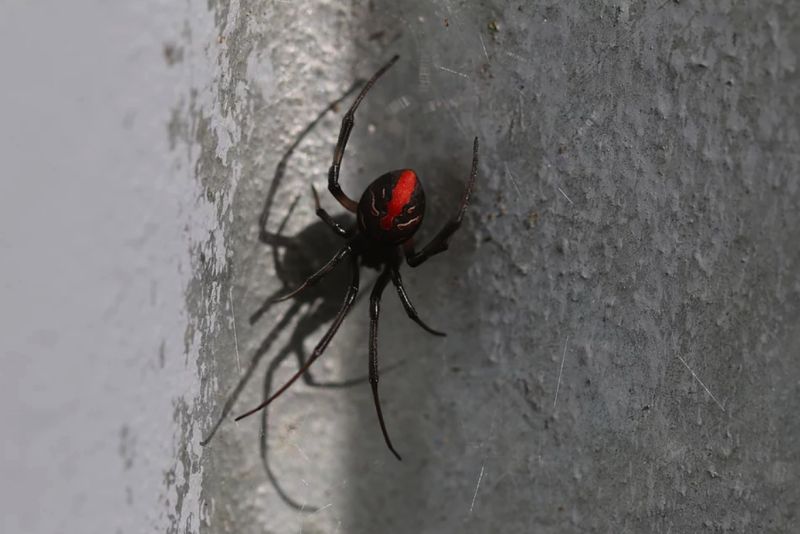
The redback is perhaps the most well-known dangerous Australian spider. It tends to build its rather tangled webs in sheltered areas; under rocks and logs, in the tubular fencing around pools, under garden furniture and BBQs, in downlights and of course in the outside dunny! The female redback (the one with the red stripe) can be quite aggressive, but in reality, bites only generally occur by accident when fingers (or other parts of the anatomy!) are inserted into the spider’s hiding place by mistake. There are approximately 2000 confirmed redback spider bites each year.
Symptoms: Pain, which can become severe and last several days. Sweating, including sweating at the site of the bite, muscular weakness, nausea and vomiting
Treatment: Follow standard spider bite treatment (see below) and then seek medical attention. An antivenom is available.
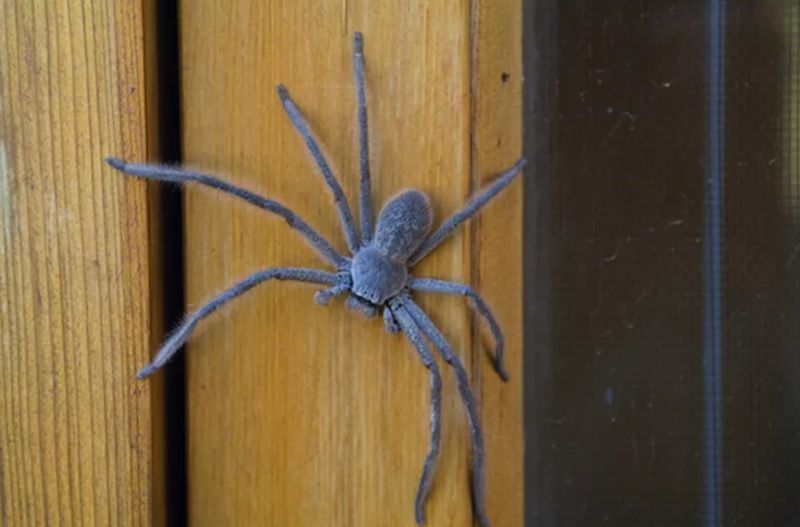
There are a large number of huntsman spiders and although they are large and quick-moving, they are generally very timid, except for female spiders when they are guarding their egg sacs. They will prefer to run away, rather than bite.
Symptoms: Mild local pain
Treatment: Follow standard spider bite treatment (see below).
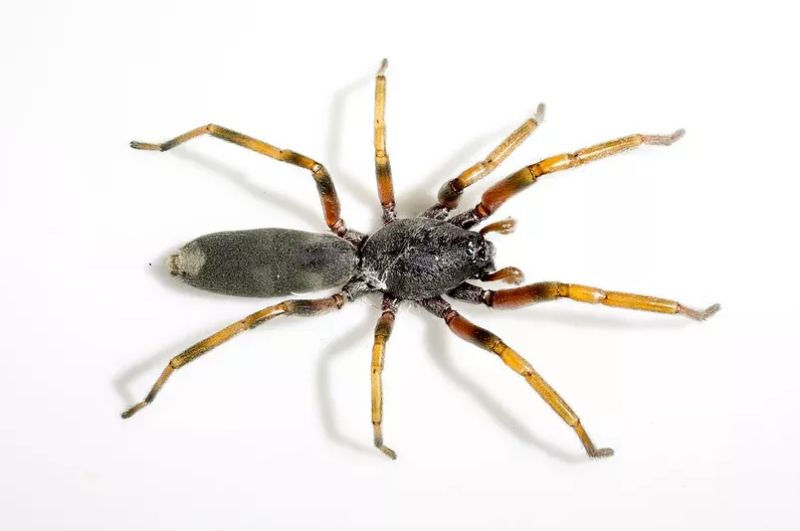
Bites from the white-tail spider commonly occur indoors when the spider has crawled into sheets or clothing left on the floor. The supposed flesh-eating properties of the white-tail spider bite is actually an urban myth. There is no chemical in the white-tail spider venom that can eat flesh and in a scientific study of over 130 confirmed white-tail spider bites, there were no cases of skin necrosis (decaying flesh).
Symptoms: Initial burning, followed by swelling and itchiness at the bite site.
Treatment: Follow standard spider bite treatment.
The recommended treatment for standard spider bites:
- Clean the bite with water and disinfectant
- Apply an ice pack to the bite area to relieve the pain
- See medical attention if the pain persists and gets severe
The patient should sit down and relax to get over the initial pain and shock. If the spider can be identified or caught (safely!), it will be useful in providing treatment if medical intervention is required.
Cleaning the spider bite with disinfectant and not scratching the bite area is important. Various bacteria can cause flesh to decay and if the bite is not cleaned or scratched with dirty fingers, bacteria can be introduced and skin necrosis can indeed occur (but this is not specific to white-tail spiders).
However, the treatment of funnel-web spiders and mouse spiders bites is different.
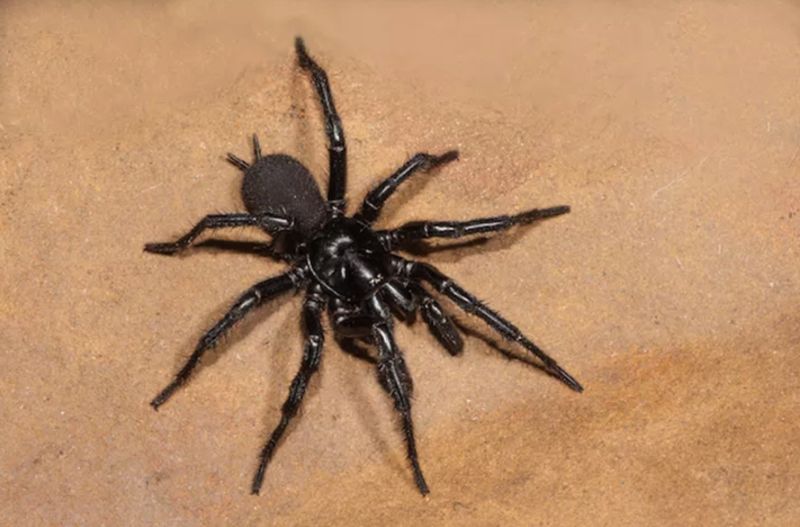
The funnel-web spiders are the most lethal spiders in Australia, although there have been no deaths from funnel-web bites since 1981 when the antivenom was developed. The mouse spiders, which are often confused with funnel-web spiders, also have a very nasty bite and should be treated in the same way as a funnel-web bite.
Symptoms: Sharp pain at the bite site (they can bite with some force). Profuse sweating, nausea and vomiting. Abdominal pain.
Treatment:
- The patient needs to sit down and remain calm
- A pressure bandage needs to be applied to the bite/limb (as per a snake bite)
- The limb needs to be immobilised with a splint
- Seek immediate medical attention
All this bite and treatment information seems scary, but in reality, spider bites are rare and if you wear thick gloves and shoes when gardening and pick your clothes up off the floor in summer, the chances decrease even further. Spiderman SE can provide specialist spider control treatments to protect you and your family from spiders in and around the house.

